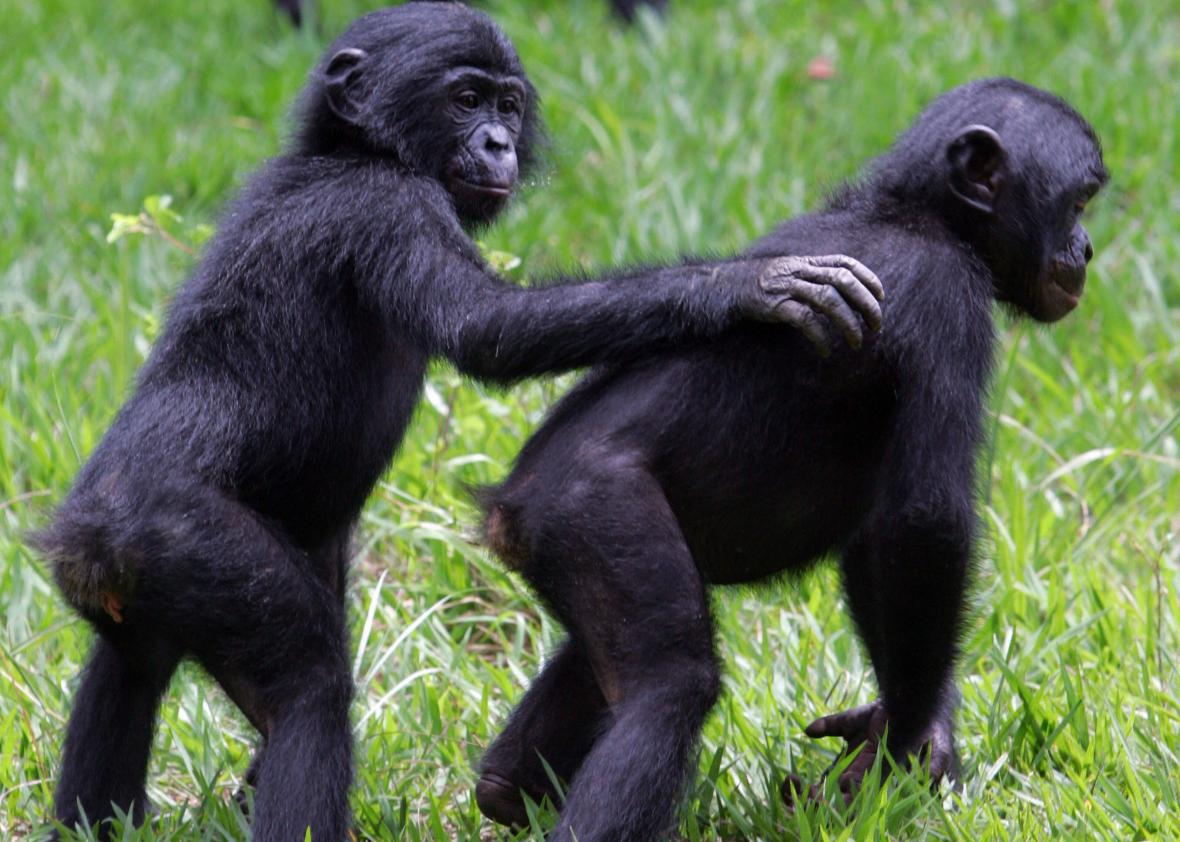Bonobos, the Central African apes known for their libertine sexual behavior, have taken the advice of Madeleine Albright to heart. “There’s a special place in hell for women who don’t help each other,” the former secretary of state has often said, most notably at a February Hillary Clinton rally to great public censure from female Bernie supporters. If she’s right, female bonobos have earned a plot of prime real estate in heaven: They regularly band together to put aggressive males in their place, going so far as to bite off penises or toes if need be, all in the name of sisterhood.
A recent New York Times piece chronicles the many bonobo behaviors we humans should try to emulate, and they make women’s self-defense classes sound like Beanie Baby tea parties. In what might be the best anecdotal lede in Times history, four male bonobos “display their erections,” excited by the “exceptionally pink and swollen” rump of a fertile female, while catcalling her and rattling the branches on her tree. Three older, more senior female bonobos descend on the lecherous males; together, the four females manage to capture one of them. “He was healthy, muscular and about 18 pounds heavier than any of his captors,” the Times recounts. “But no matter. The females bit into him as he howled and struggled to pull free.” He eventually escaped, but didn’t come back to his bonobo community for weeks. Upon his return, missing the tip of one of his toes, he avoided his peers.
Take away the toe-biting (maybe), and this is exactly how human women could and should deal with rapists, abusers, and serial sexual harassers: Scare them away by any means necessary, expel them from the safety of an enabling social system, and ostracize them until they prove themselves reborn as humbled feminists. Bonobo females are even more exacting about acceptable male behavior than we are—they join together to battle males who so much as compete with a female for food, yell threats at her, or engage in “persistent pestiness.”
The sad thing is that bonobos are equally close relatives to humans as chimpanzees, but we look to the latter far more often for clues about the roots of our species. Bonobos are light-years ahead of chimps in their sexual evolution. As the Times notes, they kiss with tongue, give one another oral pleasure, have sex while facing each other, and use their opposable thumbs for what our maker intended: making sex toys. Chimps just poke boring old sticks into termite mounds. They also have far stronger bonds between males than between females (the opposite of bonobos), kill their babies with relative frequency (bonobos never do that), and make females mate with every single eligible male (unlike bonobos, who practice some ape-like form of affirmative consent).
So why have we chosen chimps as our nearest and dearest genetic relatives? Seems like the evil machinations of a patriarchal, sex-negative, infanticidal rape culture to me. Of course, bonobos do condone adults having sex with bonobo children, a behavior humans have rightly discouraged. But chimpanzees are murderous aggressors. No species is perfect.
A California primatologist told the Times that bonobos “should give hope to the human feminist movement.” I would argue that the trend toward ironic misandry in modern pop feminism indicates that we’re already halfway to bonobodom. Imagine what glee a high-ranking bonobo female would take in eating her daily helping of insect larvae from a mug labeled “male tears.”
